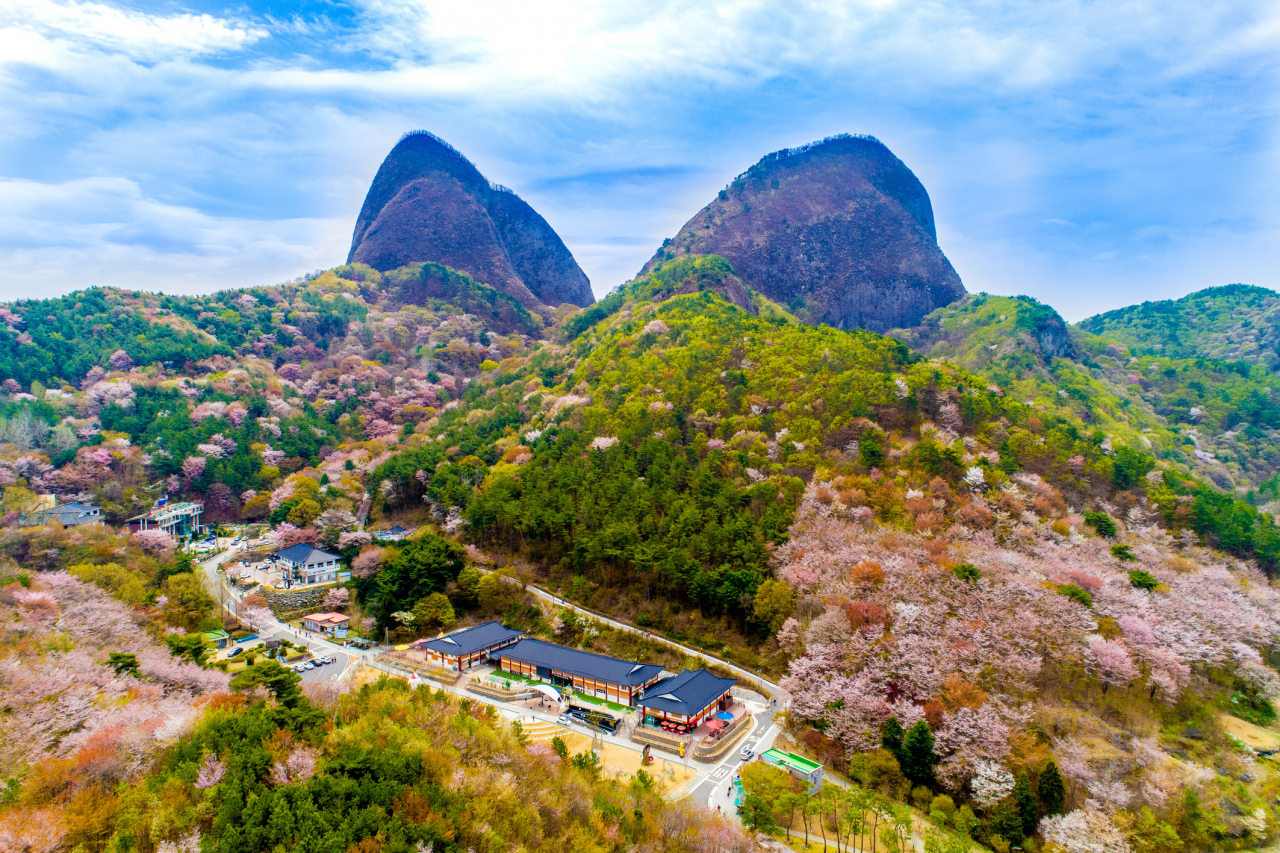 |
Panoramic view of Maisan in Jinan, North Jeolla Province (Korea Tourism Organization, Lee Jun-mo) |
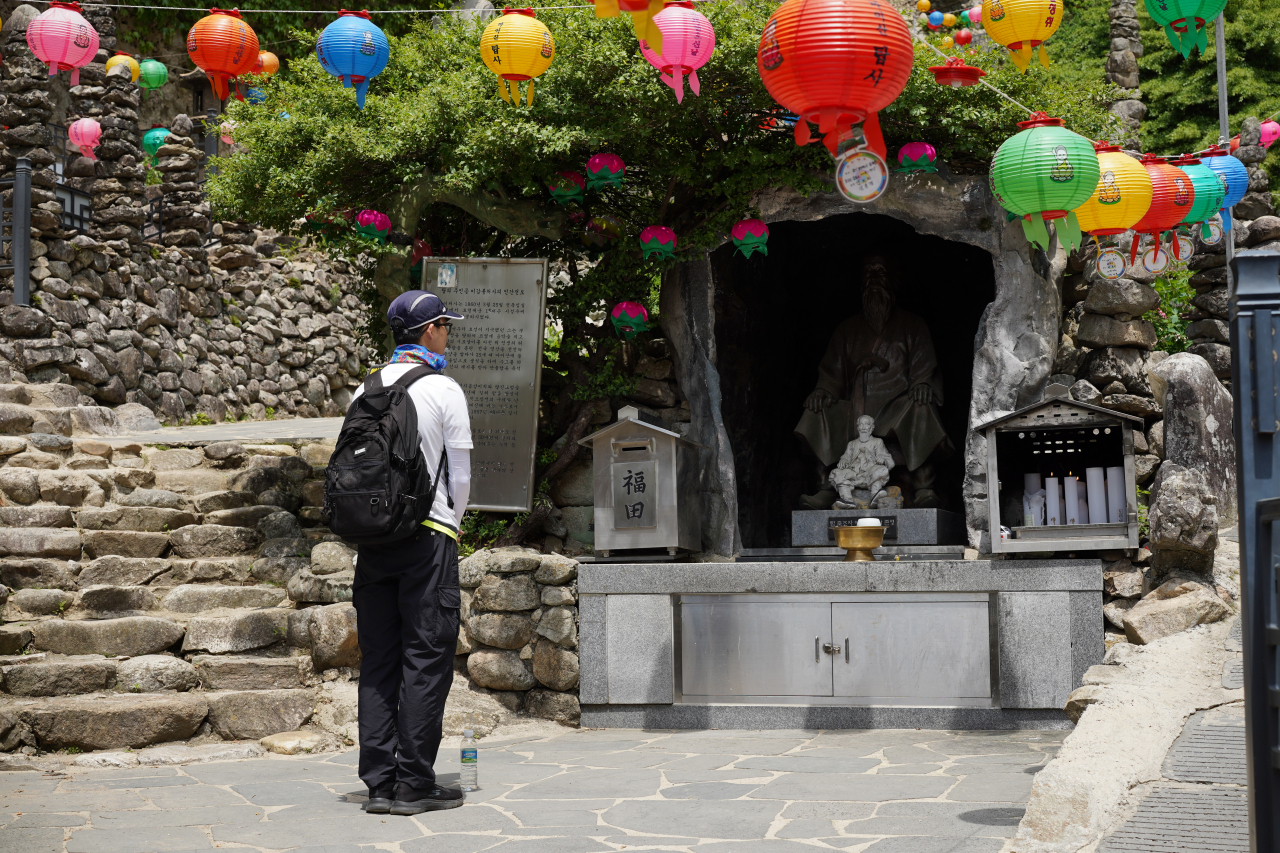 |
A visitor makes his prayer at Tapsa in Jinan, North Jeolla Province, on May 9. (Lee Si-jin/The Korea Herald) |
JINAN, North Jeolla Province -- Isolated from the bustling cities and loud car sounds, many Korean Buddhist temples allow visitors to immerse themselves in tranquil nature and find inner peace.
While many Korean temples welcome both Buddhists and tourists with spacious yards covered with sand, charming ponds and the centuries old, iconic trees, Tapsa and Eunsusa in Jinan, North Jeolla Province, both have their own unique features.
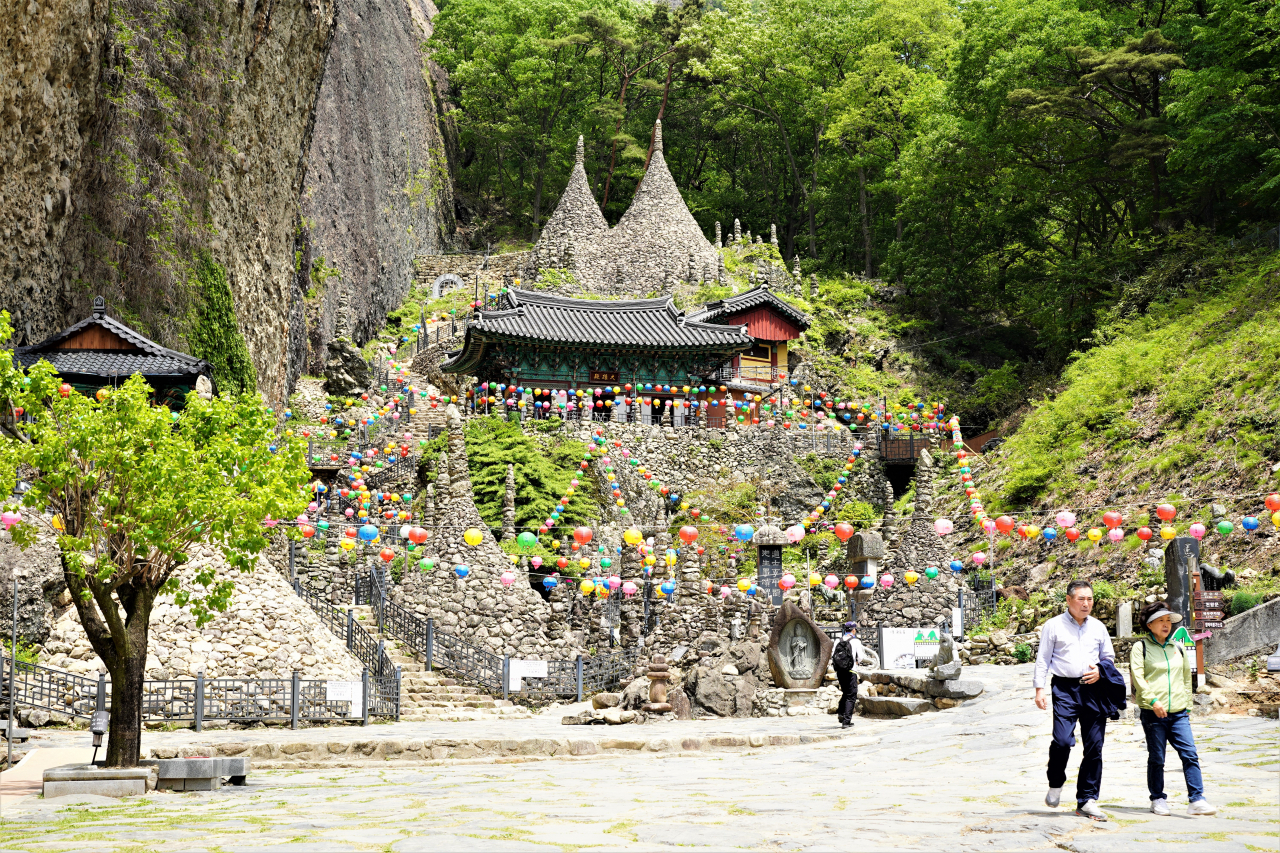 |
Tapsa (Lee Si-jin/The Korea Herald) |
Tapsa
Maisan, a mountain located some 25-kilometers east of Jeonju, is home to this temple surrounded by unusual stone towers.
After walking through the entrance of Maisan Provincial Park, first-comers to Tapsa might believe they have come to the wrong place, as the road continues with different kinds of restaurant, luring tourists with delicious armoas.
But the busy market street is soon replaced with the lush forest with trees providing shade for visitors to head to the temple.
As the travelers pass Tapyoungjae, a small lake which provides a reflected image of Maisan, they can either decide to continue on the paved road or take a "geo-trail" -- a walking trail covered with wooden deck that leads through the woods.
Tapsa lies at the end of the tree-lined trail,surrounded by awe-inspiring stone pagodas.
Among 120 stone towers built by the Buddhist layman Lee Gap-ryeong over 30 years, some 80 remain at Tapsa.
While most of the towers were built using stones from Maisan, Chunji stone tower -- a twin conical stone pagoda behind Tapsa Temple’s main hall, meaning “heaven and earth stone tower” in Korean -- is made with stones carried from famous mountains all over South Korea.
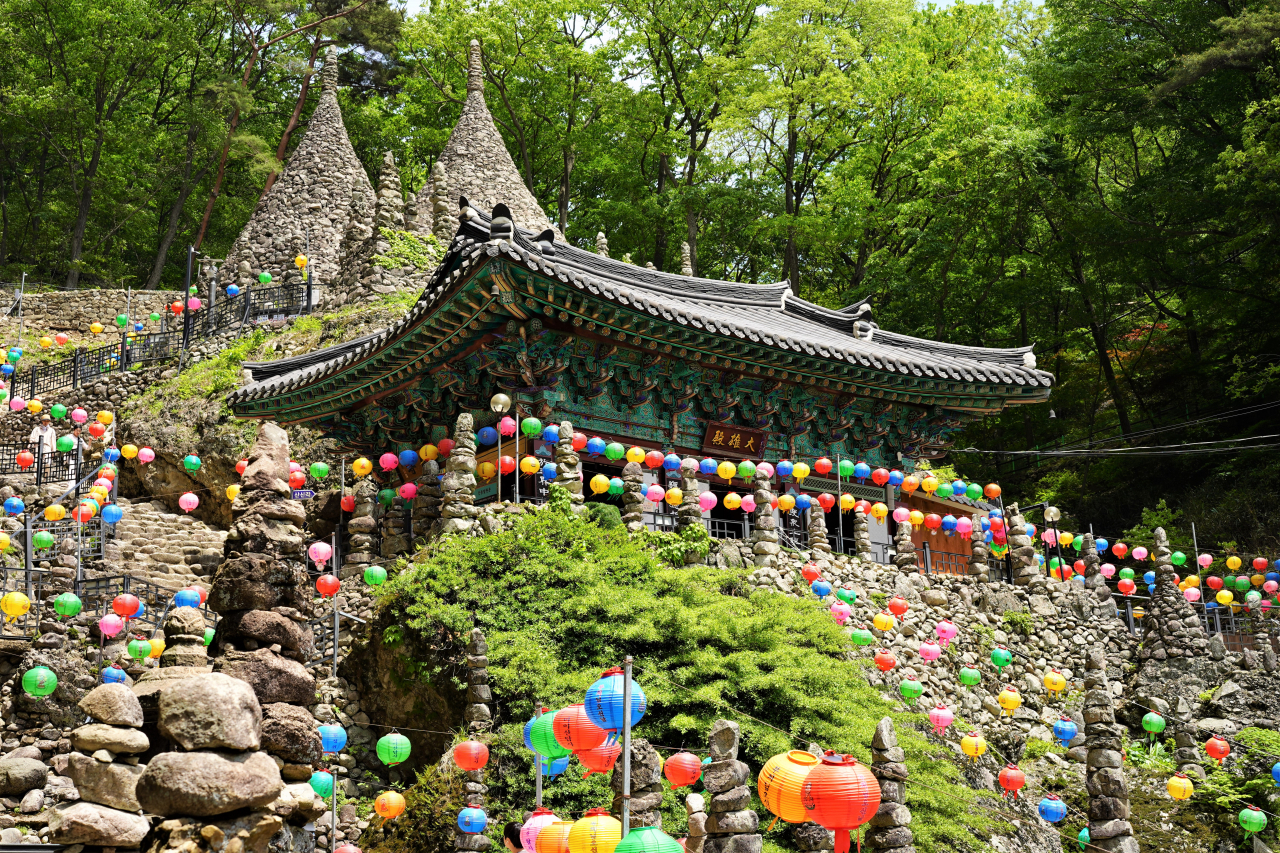 |
Tapsa Temple's main hall (Lee Si-jin/The Korea Herald) |
With Lee’s prayer for all of mankind, the stone-stacked towers, ranging from one to 15 meters in height, stand firm despite strong winds and harsh weather.
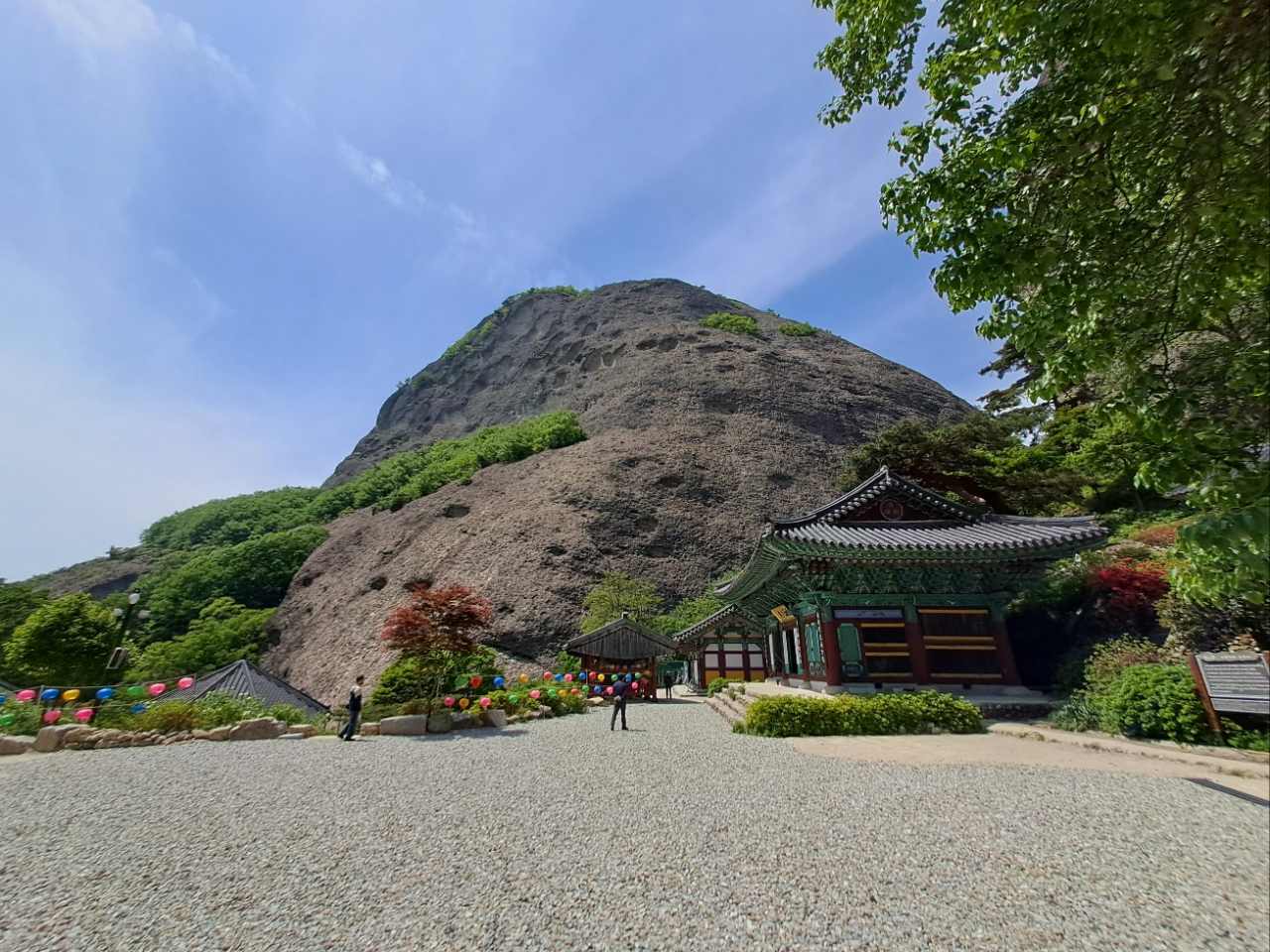 |
One of Maisan's stone peaks is seen from Eunsusa (Lee Si-jin/The Korea Herald) |
Eunsusa
If you follow a steep, curved trail next to Tapsa Temple’s entrance gate, a second sloping road leads to Eunsusa, another temple on Maisan lying deep in the folds of the mountain.
A short 5-minute hike takes you to up close to Maisans bulging twin stone peaks and their unique tafoni.
Tafoni are small, rounded, honeycomb-like openings in a rock surface sculpted by water and wind over a long period of time.
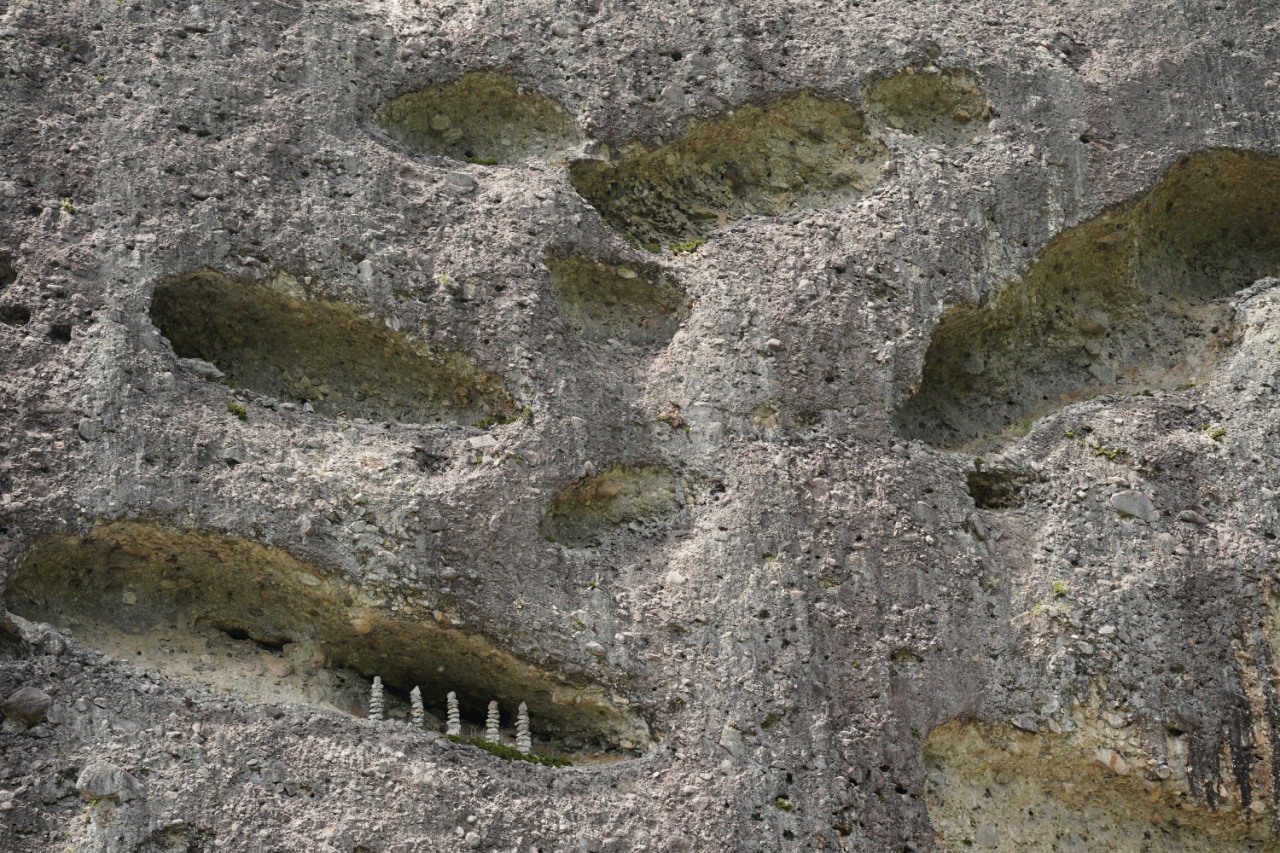 |
Tafoni at Maisan's stone peak (Lee Si-jin/The Korea Herald) |
With small stone towers standing inside the tafoni caves and the magnificent backdrop of Maisan's gigantic rock peaks, Eususa is visited by travelers across the country.
But the temple is considered an idyllic starting point for many mountain climbers, who wish to pray for a safe ascent, and a religious site to make sincere prayers.
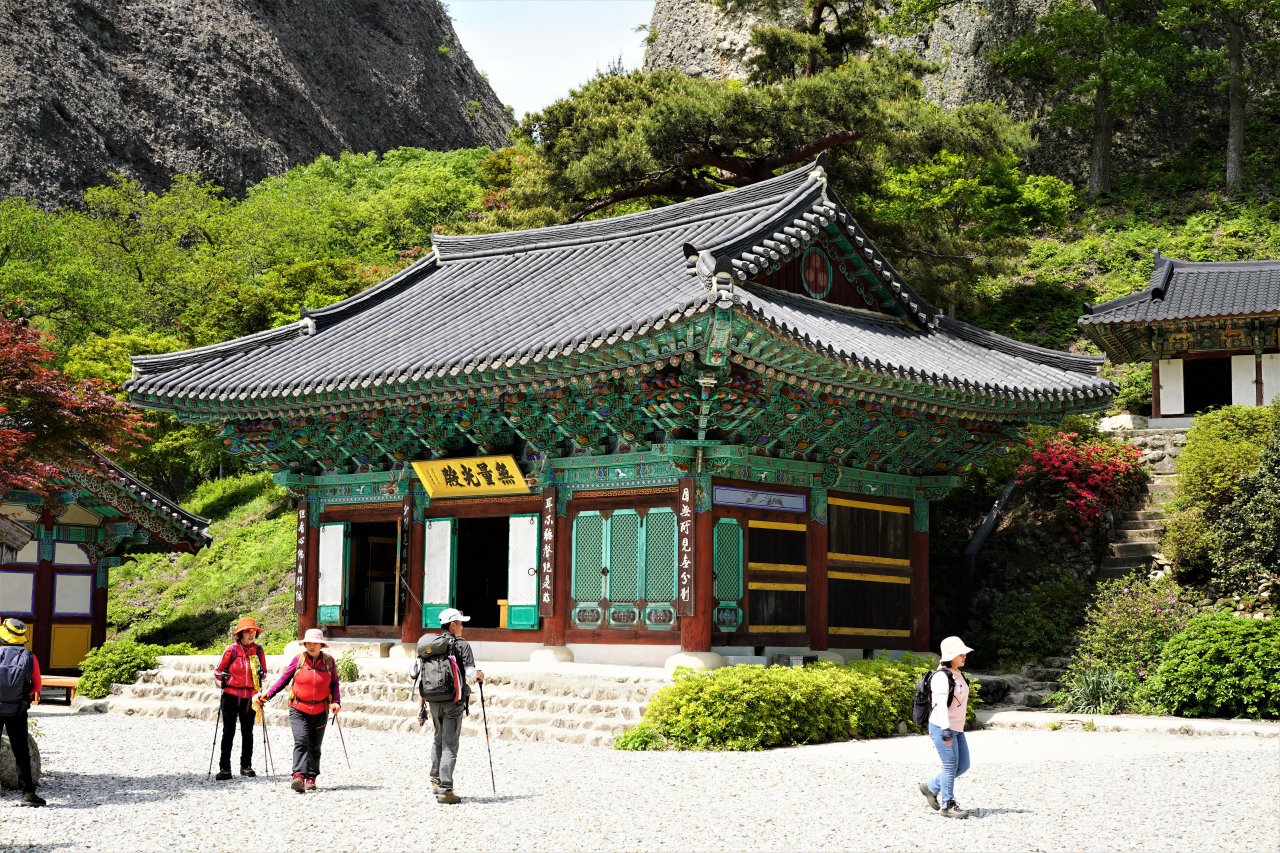 |
Mountain climbers pay a visit to Eunsusa Temple in Jinan, North Jeolla Province, to wish a safe hike on May 9. (Lee Si-jin/The Korea Herald) |
The temple is also known for a mystery related to the "reverse icicles" that form there.
If you put water into a pot during the winter, it freezes into ice spike that reaches for the sky.
It is said that those who witness the phenomena will have their wishes fulfilled.
 |
A "reverse icicle" is visible at Eunsusa in winter (Jinan Gowon) |
Eunsusa provides a calm atmosphere with the bell sound created by the gentle mountain breeze. Along with the sound of moktak, a wooden instrument used in temples when the Buddhist monks pray, a peaceful male voice fills the site, reading out phrases which are meaningful to both Buddhists and non-Buddhists.
This is the eighth article in a series introducing destinations for eco-friendly travel experiences in South Korea. -- Ed.







![[Today’s K-pop] Blackpink’s Jennie, Lisa invited to Coachella as solo acts](http://res.heraldm.com/phpwas/restmb_idxmake.php?idx=644&simg=/content/image/2024/11/21/20241121050099_0.jpg)